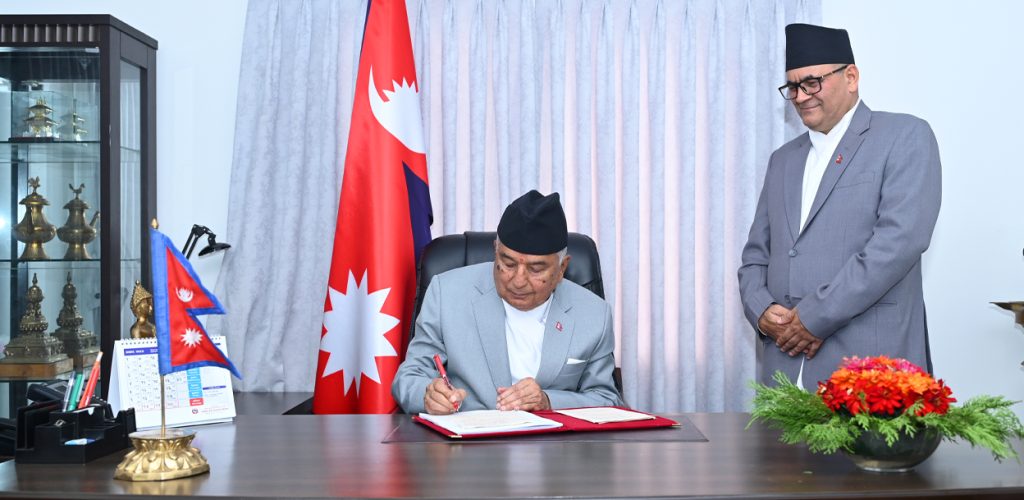

KATHMANDU: Amid mounting pressure from lawmakers of the ruling Nepali Congress, President Ramchandra Paudel has returned the amendment bill related to the Constitutional Council (Duties, Functions, Rights, and Procedures) Act, 2066, to the House of Representatives for reconsideration.
According to the President’s Press Advisor Kiran Pokharel, the bill was sent back on Thursday for further review.
Pokharel said the President returned the bill to the originating House citing that the amendment contradicted the spirit and principles of the Constitution, democratic norms and values, and international democratic practices. The move was made under Article 113 (3) of the Constitution.
The amendment bill, having been passed by both the House of Representatives and the National Assembly, had reached the President’s Office for authentication on July 15.
After a week-long review, President Paudel opted not to endorse it and instead returned it to the House.
Article 113 of the Constitution allows the President to send back any bill (except money bills) to the originating House within 15 days if he deems it necessary for reconsideration.
Amid speculation over the President’s delay, voices within the Nepali Congress had started advocating for retrieving the bill for further discussion.
Nepali Congress had expressed concerns that the National Assembly’s revision to the amendment passed by the lower house contradicted democratic values and needed reevaluation.
Nepal’s Constitution envisions a six-member Constitutional Council comprising the Prime Minister, Speaker, Chairperson of the National Assembly, Chief Justice, Deputy Speaker, and the Leader of the Opposition. The Prime Minister serves as the chair of the Council.
The returned bill included a provision stating that appointments to constitutional bodies should be made through consensus within the Council. If consensus could not be reached, decisions could be made by a majority vote comprising the Prime Minister (as Chair) and at least 50 percent of the currently serving members.
This provision had been retained by the State Affairs and Good Governance Committee of the House of Representatives and sent to the National Assembly, leading to a dispute between the Nepali Congress and the CPN-UML.
The disagreement centered on whether decisions required a majority including the Prime Minister or just a majority of other members.
Despite the controversy, the bill had advanced with the government’s original majority-based decision-making clause intact.